

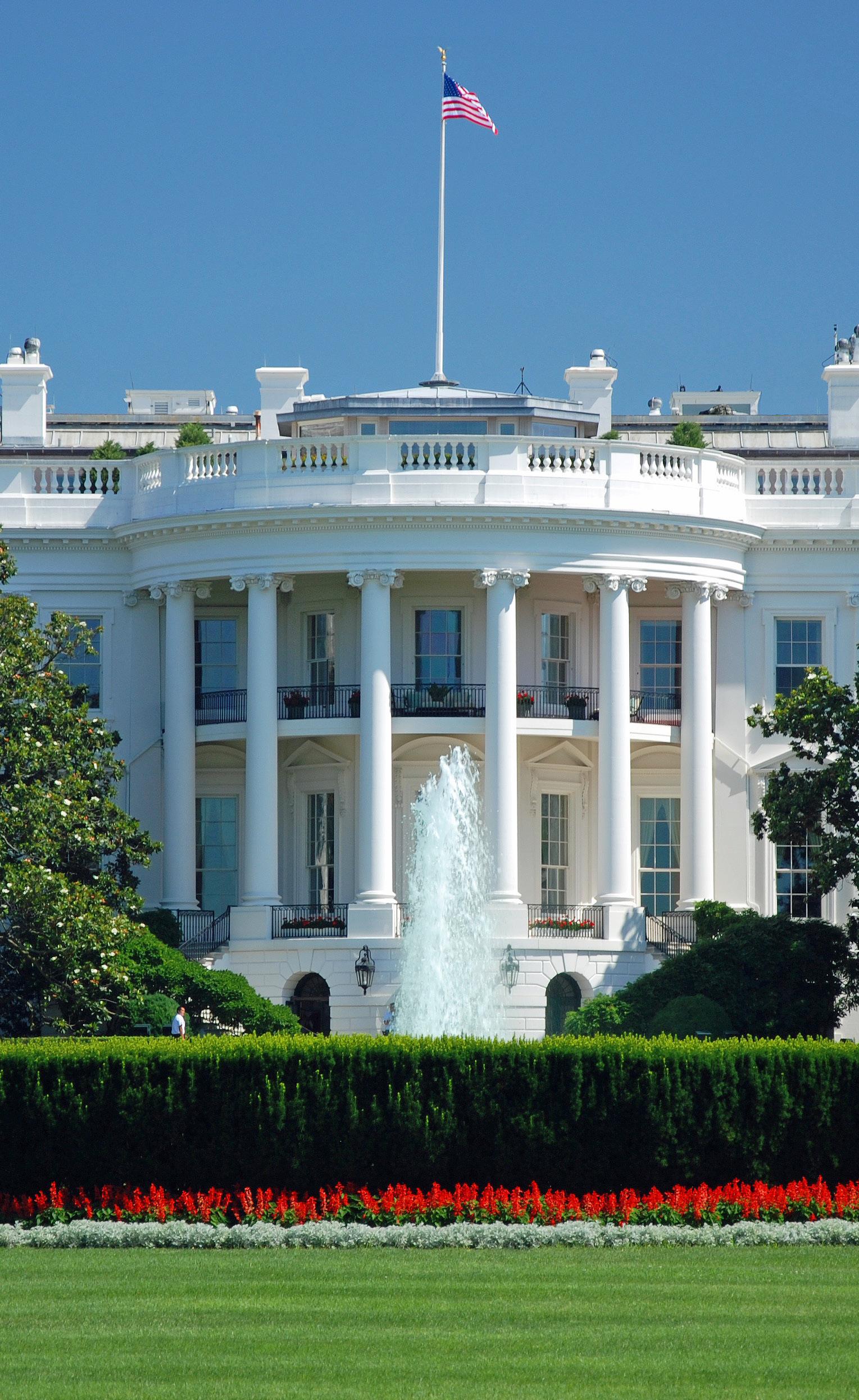






Chandler Chamber Board Chair 2023

The Public Policy Committee of the Chandler Chamber of Commerce recognizes that economic, environmental, and social challenges are interdependent, complex, and constantly changing. The Chandler Chamber of Commerce advocates for businesses and the community by addressing issues at the local, state, and federal levels of government. We do this by facilitating a bi-monthly forum of dialogue between the Chandler business community and our elected officials. Another component is through this How We Stand legislative resource, among other key events and advocacy methods.
This How We Stand document is the collective voice of Chandler Chamber of Commerce business members, approved for publication by the Chandler Chamber Board to ensure we focus on common interests. Our Public Policy efforts are outlined in this guide for our elected officials to reflect on the concerns and needs of the Chandler business community.
The various sections in How We Stand have been thoroughly researched and discussed by business owners in Chandler with the intention of improving policy formulation, impact and implementation. The feedback contained in this document supports the Chandler community in remaining competitive with rapidly changing and progressive business interests.
TERRI KIMBLE President/CEO | Chandler
Thank you for taking an interest in the Chandler Chamber’s 2023 How We Stand booklet. Today, government affects all aspects of our lives. Everyone has a stake in the public policies sanctioned by federal, state and local governments. To govern our community effectively there must be a set of guidelines.
One of our main responsibilities as a Chamber is to research and inform our members of any legislative issues that would affect the outcome of a prosperous future. Through extensive research and discussion, the members of the Chandler Chamber have drafted this booklet of policies to measure the pulse of the Chandler business climate.
It is our hope that these guidelines will offer a deep-dive into the concerns of the Chandler business community. We appreciate your dedication to assist in furthering business development and opportunity in Chandler.

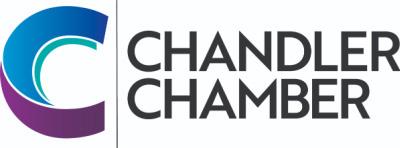

To proactively engage and influence the outcome of public policy issues and the endorsement of pro-business candidates to sustain and further enhance the healthy business climate in the City of Chandler and Arizona.
The work of the Good Government Committee includes:
• Expanding upon the Candidate Endorsement program and Candidate Forums.
• Collaborating with the Arizona Chamber of Commerce, the Arizona Chamber of Commerce Executives Association (ACCE) and the U.S. Chamber of Commerce on legislative and congressional report cards.
• Working with governmental groups on issues that affect businesses in Chandler. This includes organizing various events with municipal and legislative leaders.
The work of the Public Policy Committee includes:
• Hosting monthly Public Policy Committee meetings to discuss current issues.
• Seeking input from experts in order to inform committee members of relevant issues.
• Developing the How We Stand document to share our pro-business objectives with elected leaders.
• Developing advocacy plans when municipal or legislative issues require our involvement to achieve the desired outcome.
• Promoting Chamber members for state and local boards and commissions.
The Chandler Chamber of Commerce was the proud recipient of the National Award of Excellence from the American Chamber of Commerce Executives (ACCE) for our How We Stand legislative agenda. This award is reflective of the commitment and the cooperation of our members, businesses, community leaders, and elected official addressing the legislative issues that are critical to the business community.
President and CEO, Terri Kimble was awarded “Leader of the Year” for the Chamber’s work in public policy regarding economic development by the Arizona Capitol Times. Each year, the Capitol Times recognizes men, women, and organizations that have contributed greatly to Arizona’s growth.

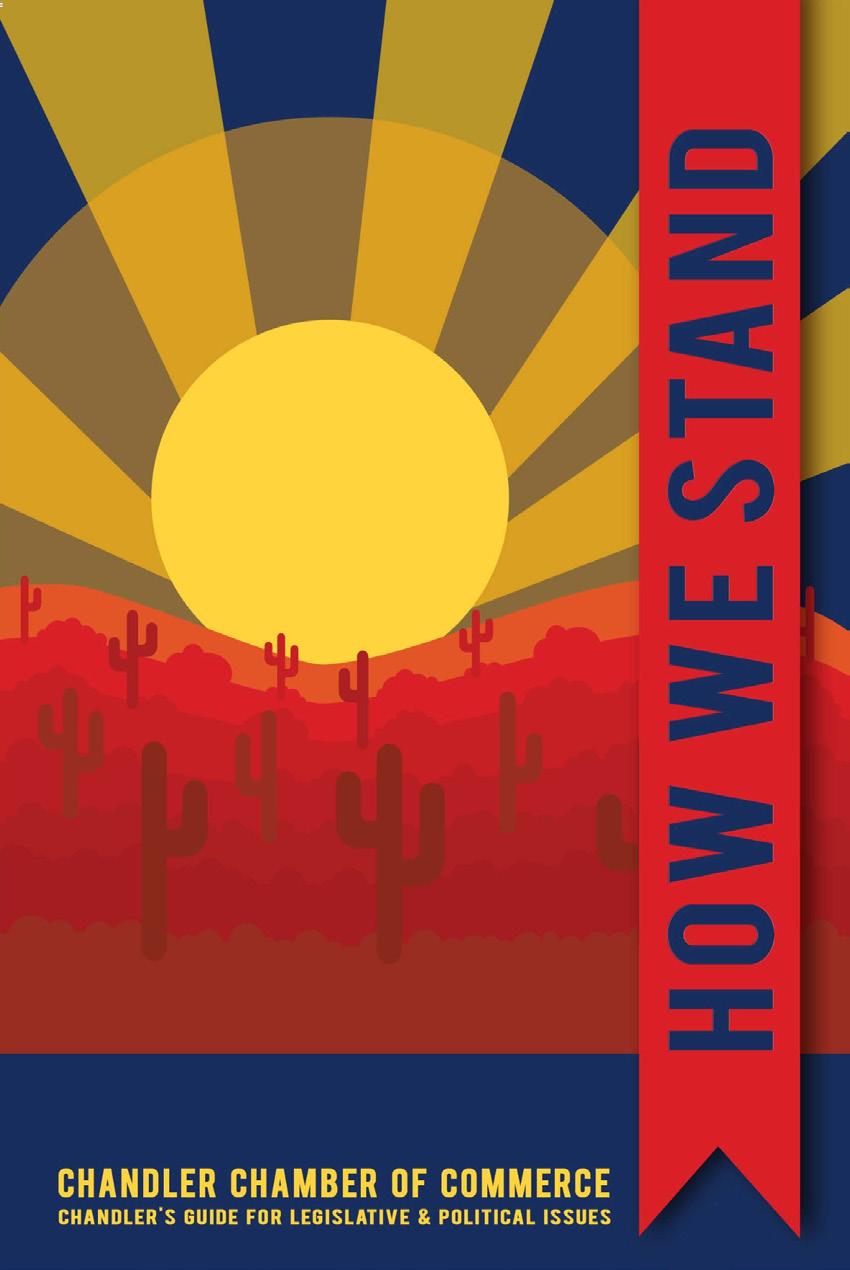
The Chandler Chamber was awarded the Chandler-Gilbert Community College Teal and Silver Award for Business Partner of the Year
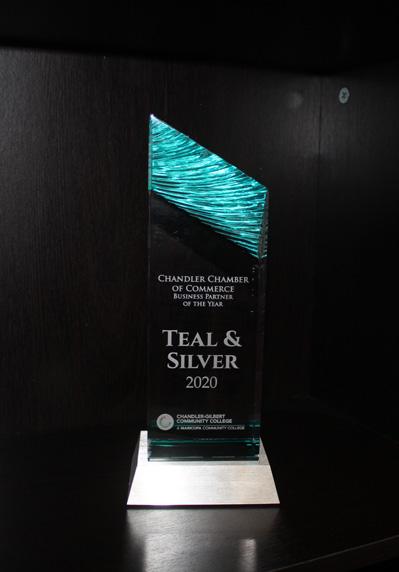
The Chandler Chamber of Commerce is an organization driven by more than 1,500 member businesses representing over 172,000 employees of businesses operating within the Chandler area. The Chandler Chamber’s Board of Directors develops and executes an annual strategic plan by adopting public policy positions. Recognizing the impact on the business community, the efforts of public policy and government relations are a high priority for the Chandler Chamber of Commerce.


The Chandler Chamber’s mission is to build a strong economic environment conducive to business success in Chandler and the surrounding area. The Public Policy Committee stays involved with policy issues being discussed by Congress, the Arizona State Legislature, Maricopa County, Chandler City Council, and Local Governing Boards to ensure decisions support the overall mission of the Chamber.
The role of the Public Policy Committee is to determine the effect that different policy decisions have on the business community. The Committee composes statements that are submitted to the Chandler Chamber Board of Directors to be reviewed, approved, and ratified. This process allows the Chamber to develop its positions on public policy issues.
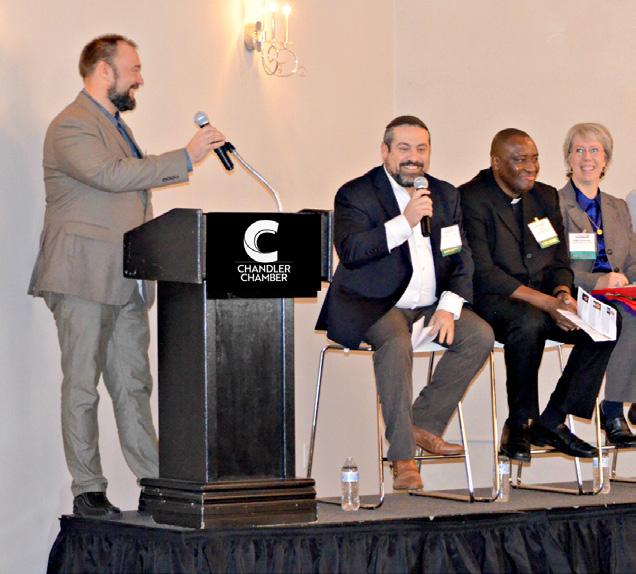
The How We Stand document is divided into 12 relevant policy sections. Each section consists of policy statements and the level of governance that supports each position, categorized as Local, State, and Federal concerns.
Footnotes are included to expand upon or clarify select terms or policies expressed in the policy statements. These footnotes are for your convenience, providing additional context to issues that may be new or unfamiliar, as well as links to websites for further information.
To vote in the state of Arizona you must be a U.S. citizen, at least 18 years old before next election day, and a resident of Arizona and current-listed county. A person in Arizona cannot vote if they are a convicted felon or have been deemed incapacitated by a state or federal court of law.
Arizona residents can register by mail, online, or in-person through services including ADOT, vote.gov, and the Maricopa County Recorder’s Office. To register, an Arizonian must provide proper state or federal I.D. along with current residence. Registrations must be received by the country recorder at least 29 days before the next eligible election.
Early voting in Arizona allows citizens to cast ballots by mail or in person at voting centers prior to scheduled election days. Any Arizonan eligible to vote can register for early voting. In Arizona, absentee ballots require no excuses or reasons for obtaining the ballot. Absentee ballots must be requested 11 days before the next eligible election.
A person should update their voter registration if they have changed addresses, especially switching states, between elections or have switched party affiliations. This should be done at least a month before the next eligible election. Voter registration can be updated online through Service Arizona, by mail, or in-person with the County Recorder’s Office.
Arizona has “semi-closed primaries” where-in persons registered to a political party can only vote in their own party’s primary. However, unaffiliated voters may choose which party’s primary they wish to vote in.

To register to vote, Arizonians can use US federal, state, or local government-issued IDs, Tribal enrollment cards, or two other forms including: utility bill, bank statement, valid AZ vehicle registration, AZ vehicle insurance card, property tax statement, or official mailing labeled as “official election material.”

Azsos.gov Ballotready.org/az
Recorder.maricopa.gov
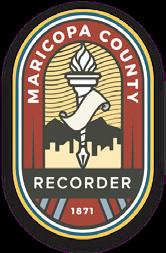
Chandleraz.gov/government/departments/city-clerks-office
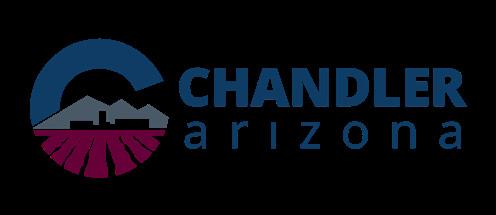
GUIDING PRINCIPLE: In order to provide jobs and services at all levels of the economic spectrum, the Chandler Chamber of Commerce supports collaboration with the City of Chandler and through regional, statewide, and federal efforts that attract, grow, and retain businesses.
I. Advocate free trade policies to promote Chandler’s and Arizona’s competitive position within the global market.
II. Continued support through collaboration with the City of Chandler, Chandler City Council, and regional partners to further economic development.
• Support economic development incentives that protect and improve Arizona’s competitive position for diverse business attraction, retention, and expansion promoting Chandler as a regional hub for innovative, international, and capitalintensive industries.
• Support improved branding efforts and the creation of financing mechanisms to bring film, tourism marketing, and multimedia attraction to Chandler.
• Support public and private infrastructure investments necessary to enable high-tech innovations in all industries, including Chandler’s efforts to serve as a hub for safe artificial intelligence and smart-city technology1.
• Strengthen Arizona’s economy by encouraging increased public-private partnerships that align with the City’s mission for economic vitality.
• Support the Business Retention and Expansion2 (BR&E) program between the Chandler Chamber of Commerce and the City of Chandler through the development of timely and accessible information, and coordination on business climate, trends, and data for all stakeholders.
• Support the Chandler Chamber Commerce and the City of Chandler’s entrepreneurial programs that expand innovative business enterprises, while utilizing all available state and federal resources.
• Support the continued availability of comprehensive educational assistance programs for small businesses regarding the procurement process for business owners.
• Support programs and agreements that expand trade opportunities for U.S. businesses, easing their ability to compete globally, including the continuation of the Export-Import Bank of the United States (EXIM)3 partnership, free trade policies, and specialty zoning.
• Support the responsible use of eminent domain and incentives, when prudent and necessary, to maintain or expand long-term economic development opportunities.
• Support legislation for business recovery efforts following the impact of pandemics/contagious illnesses and other economic crisis.
• Increase the State of Arizona funding for tourism promotion, encourage the Office of Tourism to first seek a chamber of commerce or qualified private non-profit organizations as a destination marketing organization (DMO)4.
• Oppose raising the city-wide minimum wage and workplace benefit policies above the state-mandated minimums.
• Support creative and market-driven solutions, such as repurposed or renewed infrastructure, to provide sustainable and affordable workforce housing that is geographically equitable.
GUIDING PRINCIPLE: The Chandler Chamber of Commerce acknowledges the need for a nationallyrecognized education system that produces college-ready graduates and skill-based workers who can compete globally and fulfill workforce needs, attracting and retaining a comprehensive range of industries to the state.
I. Focus on maintaining equal, equitable, and accessible education.
II.Emphasize diverse workforce development programs that include universities, community colleges, vocational schools, and public-private partnerships.
III.Support reform of the state Aggregate Expenditure Limit for public education to ensure district schools have the authority to access, and spend, legislative appropriations in the most responsible manner.
• Support a strong, world-class education system that is stable, equitable, and utilizes regularly reviewed performancebased funding1.
• Advocate for financial investments in the public P-202 education and higher education programs to ensure Arizona communities and businesses have a qualified workforce.
• Support equitable funding for community colleges and universities, including opportunities for strategic investments and research funding.
• Support tailoring of programs in the education-to-workforce pipeline to fill immediate needs in Arizona’s workforce.
• Support curriculum focused on financial and economic literacy, civics, history, entrepreneurship, research methodology, reading, business education, and STEAM3 to prepare students at the P-20 levels and meet rapidly evolving workforce needs, with particular focus on the technology industry.
• Support public funding assistance for students to reduce education debt, including Arizona’s 50/50 Resident Tuition model4 in combination with an increased discipline in debt lending.
• Support innovative programs that increase access to one-to-one technology, further advancing remote learning at all grade levels, improving results, and ensuring equitable access across different education platforms.
• Support metrics5 and relevant strategies that evaluate widely-accepted education indicators for Arizonans to measure the state’s progress in education from early childhood through college and career.
• Support increased programming and funding for student mental and physical health or “whole student” care and education.
• Support policies that require trained and qualified proctors for mandatory student performance evaluations in district, charter, private and online schools as well as colleges, universities, and placement tests.
• Support high-quality education funding for district, charter, and online schools to better meet the needs of the individual student, including Career Technical Education District (CTED) and trade school options including all day kindergarten options.
• Support the modernization of Arizona’s P-20 funding system by replicating high-performance educational models, to retain qualified educators and faculty6, and accommodate all students’ needs, including low-income and rural areas, promoting high educational achievement for all learners.
• Support the Achieve60AZ program to reach the goal of 60 percent of Arizona adults, ages 25-64, holding a professional and/or trade certificate or degree by 2030.
• Support continued improvement of P-20 student tracking systems7 to ensure accurate attendance counts and identification of funding needs, particularly at the pre-school level.
• Support greater equity in cross-delivery models8, related to student transportation, accommodations for special needs students’, and greater control for rural, small, and underserved districts in their funding and budget allocations.
• Support career pathway and related training initiatives and programs within the Arizona@Work program aimed at furthering adult education and retraining an aging workforce, including support for community colleges and apprenticeship programs.
• Continued support of Arizona’s tradition of pro-school choice policies that include accountability measures
GUIDING PRINCIPLE: The Chandler Chamber of Commerce expects city, state, and federal policy-making decisions, and monetary appropriations to be made by elected officials.
I. Encourage transparency and accountability at all levels of government.
II. Modify the voter initiative process.
III. Support policies that reduce state overreach and empower strong local control.
• Support the implementation of an Ethics Committee to establish and maintain a code of ethics that governs elected officials at all levels.
• Support dollar limits for clean election candidates and the removal of publicly-funded elections.
• Support the reauthorization of state voter-approved initiatives every 10 years.
• Support vetting processes to ensure only sound and legal initiatives receive approval, while retaining the capability to rescind any ballot measures, executive orders, or multi-state coalitions that may result in unintended consequences.
• Support reforms to the Voter Protection Act1 system that would allow two-thirds of the legislature approval to amend, supersede, or transfer funds to further the ballot measure.
• Support increasing the terms for State Senators and House Representatives from two to four years with staggered elections.
• Support the formation of a local City Charter Review Committee comprised of citizens and business leaders to review the city’s charter ensuring congruency between laws and city needs, with city officials working in collaboration for the review.
• Oppose City Charter amendments that alter the four-year term limits for mayor and council.
• Support streamlined governmental processes, intercommunication, and services through technology-based, sustainable solutions, to create a responsive environment and reduce barriers for businesses. Particularly with the Arizona Corporation Commission and the Department of Economic Security.
• Support the reduction of federal and state debt and the unmitigated growth of entitlement programs that negatively impact Arizona.
• Support regular unilateral reviews of city and state elected officials’ compensation to reflect their responsibilities and time commitments.
• Support the extension of Arizona’s annual regulatory moratorium, which limits burdensome government regulations on businesses.
• Support policies that balance revenue expenditures with maintaining compliance on constitutionally mandated spending requirements.
• Prioritize transparency in public-private partnerships to improve efficiency and ensure proper stewardship of taxpayer funds in delivering community services, public policy, and stimulating economic growth.
• Support correctional system reforms that provide programs aimed at educating and training a skilled labor force in an effort to reduce recidivism, while reducing costs in the system.
• Support continued fiscally-sustainable reforms to city and state pensions that create solvency within the system and do not place the burden on taxpayers.
• Support the City of Chandler’s dedication to maintaining a strong credit rating3, and efforts to educate the community on the economic factors that can affect the rating, such as bond initiatives.
• Support the continued reduction in business property taxes to assist in economic growth and vitality.
GUIDING PRINCIPLE: The Chandler Chamber of Commerce supports safe, affordable, reliable, and resilient water and utility services; and environmental policies that protect our natural resources, are sensitive to Arizona’s unique needs, and do not place an undue burden on businesses. The Chamber supports policies and legislation for the continued development and maintenance of statewide energy, water, and telecommunications infrastructure.
I. Sustainable water policy must be a priority.
II. Promote sustainability in resource management and distribution.
III. Continue to build upon and improve Arizona’s energy infrastructure.
• Support state primacy in setting reasonable water and air quality policy, and energy efficiency that provides practical options for businesses within the consensus of our state legislature, the Arizona Corporation Commission1, and utilities.
• Support legislation and innovations that give a high priority to water sustainability and promote fair utility rates for consumers, while keeping the industry competitive without compromising service, safety, and reliability.
• Support routine testing of our water supply and air quality non-attainment standards to ensure the long-term health and safety of all Arizonans.
• Support legislation and regulations to maintain and improve Arizona’s infrastructure, propelling our state’s economy ensuring safe, reliable, and sustainable practices.
• Support market-based and regulatory policy approaches in the State of Arizona that recognize and combat climate change.
• Support reliable, innovative, and technological strategies for acquiring and storing water, including the continuation of Arizona’s Drought Contingency Plan2, the City of Chandler’s water management plan3, and the Bartlett Dam Project proposed by the Verde River Sediment Mitigation Study4.
• Promote public awareness campaigns and smart regulations supporting the most efficient water and energy usage, with the goal of consumption management and conservation.
• Support policies and incentives that advance the implementation of cost-effective green initiatives and environmental protections.
• Support energy policies that encourage the continued development and maintenance of statewide energy infrastructures such as generation transmission and distribution facilities, ensuring a safe, affordable, and reliable energy supply.
• Support research for renewable natural gas, hydrogen, and nuclear technologies.
• Support policies that allow major sources5 to secure a limited number of air quality permits to locate or expand operations for business attraction and retention while ensuring environmental quality.
• Support Arizona in developing a State Implementation Plan (SIP) in response to federal carbon emission reduction requirements under the EPA Clean Power plan and the Clean Air Act.
• Support legislation to increase fund allocation for forest fire prevention services over fire suppression.
• Support increased oversight and assurances that developers can maintain a 100-year water supply for new developments.
GUIDING PRINCIPLE: The Chandler Chamber of Commerce believes in sustainable economic development that encourages entrepreneurship, business attraction, retention, and expansion with a balanced emphasis on local control of planning, orderly growth, and open space preservation.
I. Encourage the continued modernization and innovation of Chandler’s development & urban planning.
II. Assess Chandler city zoning and land use for effective allocation as Chandler approaches build-out.
III. Promote transparency and business/citizen involvement in Chandler’s development & urban planning.
• Support the City of Chandler’s ongoing planning efforts and land use decisions that encourage increased density in the downtown and mall areas.
• Support appropriate zoning and land use surrounding military installations and airports that advances the mission of those facilities and limits residential encroachment.
• Support implementation of a collaborative and coordinated effort between counties, municipalities, tribal communities, the State Land Department, and the Bureau of Land Management in local planning, land-use decisions, and property disposition timetables.
• Support alternative methods of urban planning and infrastructure including multi-use public buildings, adaptive reuse architecture, emphasizing walkable and intentional communities, soft amenities, and technologically-innovative infrastructure to maximize service to residents, workers, and visitors.
• Support a proactive stance for the redevelopment and reinvestment of blighted areas, adjusting to changing times and traffic patterns, and the city’s short-and long-term development plans.
GUIDING PRINCIPLE: The Chandler Chamber of Commerce supports the defense of all critical U.S. infrastructure as key as key to the economic integrity of Arizona. The Chandler Chamber advocates for legislation that provides information and security designed to shield businesses from cyber threats while protecting their rights to privacy.
I. Promote the continued development of cyber security and intellectual property protections to prepare for and defend against evolving threats.
II. Continued support of public-private partnerships within the defense sector and increased communication between agencies.
• Support a fiscally-responsible defense budget that protects national security while eliminating automatic over-cap budget reductions1.
• Support Arizona’s congressional delegation in their efforts to promote Arizona’s military installations to take on new and expanded missions that increase economic development.
• Support efforts to promote smart technology and infrastructure, and advance cyber security capabilities, ensuring Chandler and Arizona remain leaders in “smart city” adaptations allowing for future technological advances.
• Support federal privacy legislation to enact nationwide standards governing the collection, use, and sharing of personal data consistent with the Fair Information Practice Principles2.
• Support partnerships between the U.S defense or intelligence sectors and private security stakeholders to ensure that the U.S has the most up-to-date cyber security measures.
• Support actions to ensure that upcoming elections are efficient, verifiable, and secure from outside interference, and promote collaboration between stakeholders to encourage transparency in the election process.
• Support strengthening intellectual property protection and enforcement while punishing malicious perpetrators in the international arena.
• Support partnerships between government entities, private businesses, and schools to keep cybersecurity education on the cutting-edge.
• Support programs that educate the general public on cyber-threat awareness.
GUIDING PRINCIPLE: The Chandler Chamber of Commerce recognizes the broad economic impacts of rising healthcare costs and the challenges businesses face in providing affordable healthcare benefits to employees. The Chandler Chamber of Commerce also recognizes the positive economic impact the healthcare sector brings through high-wage and high-skill employment, as well as world-class medical care for the community.
I. Encourage accessible and affordable insurance for small businesses.
II. Focus on an affordable patient-centered system that fairly and adequately addresses patient needs.
III. Promote workforce development in the healthcare sector to address critical staffing shortages.
• Support healthcare workforce policies to address the Arizona healthcare worker shortage, building a high-quality and sustainable healthcare profession pipeline.
• Support an environment that attracts capital investments in human resources, training and recruiting programs, and innovative technology to address provider shortages and improve patient outcomes.
• Support efforts to expand and maintain a strong medical workforce through the J-1 Visa program1, continued funding of high-quality medical education, specifically residency programs, and incentives for teaching programs within hospitals.
• Support the positive effects of workplace wellness and provide tax-favored status to programs aimed at keeping employees healthy.
• Support continued policy advancements and innovations in telehealth to increase accessibility and equity of patient care.
• Support Accountable Care Organizations (ACOs)2 and their efforts to provide improved quality of care for Medicare patients.
• Support increased transparency for patients in public and private health insurance, medical billing, and collection practices through increased communication and collaboration between insurance companies, vendors, medical providers, and patients.
• Support the creation of a system that would help streamline the healthcare insurance process between small businesses and healthcare vendors.
• Support reforms of the Patient Protection and Affordable Care Act3, which have resulted in increased regulation, healthcare expenses, and taxes for employers and employees.
• Support legislation that provides small businesses the option for pharmaceutical benefits to be unbundled from health insurance coverage, allowing employees to source lower-cost pharmaceutical benefits from third-party providers.
• Support legislation and efforts to strengthen Arizona’s Behavioral Health System, such as de-stigmatization efforts, improved suicide prevention, mental health treatment programs for all populations, and improved partnerships and coordination with the public and private sectors.
• Support the current and ongoing efforts of the state in combating substance abuse issues and the promotion of the Arizona model4 at the federal level.
GUIDING PRINCIPLE: The Chandler Chamber of Commerce supports comprehensive federal immigration reform that is responsible, stimulates the economy, aids law enforcement agencies, and creates jobs; reform that would improve enforcement and protect the border, while facilitating the flow of trade and recreational travel.
I. Protect business-friendly immigration and worker programs.
II. Promote comprehensive federal immigration reform that encourages economic growth.
• Support policies that help manage our border(s) while timely responding to the labor needs of the U.S and Arizona economies.
• Support best practices and education for all stakeholders in the immigration process to facilitate, encourage, and maintain safe and effective visa and entrance programs.
• Support policies that increase access to study programs, both financial and administrative, for international students and undocumented immigrants.
• Support federal reimbursement for states that incur high costs of education, health care, and incarceration due to undocumented individuals in the country.
• Support policies that ensure fair wages and working conditions for all naturalized citizens relative to their occupational peers.
• Support cost effective and innovative technology solutions to protecting our borders while protecting human rights.
GUIDING PRINCIPLE: The Chandler Chamber of Commerce supports reforming the legal system to reduce both the cost and number of frivolous lawsuits for businesses.
I. Focus on protecting businesses and ensuring fair and equitable dispute resolution for all parties involved in litigation.
• Support advocating for a fair and transparent initiative process that reflects the will of Arizonans while respecting the constitutional authority and duties of the legislature.
• Oppose overly prescriptive statutes and regulations, removing unreasonable regulatory and licensing barriers for businesses.
• Support tort reform that limits abusive litigation and frivolous claims, to avoid prolonging litigation and unnecessary legal costs.
• Support legal reform that allows appropriate compensation for substantiated damages and reduces litigation costs for Arizona businesses.
• Support business liability protection from pandemic/contagious illness-related lawsuits.
GUIDING PRINCIPLE: The Chandler Chamber of Commerce encourages maintaining or enhancing current business tax credits and exemptions while opposing new taxes on business services and goods that may adversely affect economic and business growth.
I. Passing clear and concise tax laws that allow businesses to understand their liability without subjective agency interpretation.
II. Support a competitive tax environment for Arizona to compete nationally and globally, to attract cutting-edge, innovative industries, and maintain a strong and healthy business climate.
• Oppose accounting gimmicks and fund sweeps to legislation as budget balancing mechanisms, especially when related to transportation, infrastructure, and education.
• Support statutory clarification and consistency among states regarding taxation of digital goods and services to provide clarity and certainty to taxpayers.
• Support the cohesion of tax codes across municipalities to the state level and the elimination of excessive codes and regulations.
• Support policy that gives value to stranded tax credits1 earned by companies investing in Arizona.
• Support business protections from tax increases and the elimination of current business tax credit and exemptions.
• Support continued passage of the Home Rule2 to increase and maintain local control of budgeting issues.
• Support modifications to the construction transaction privilege tax system that maintains state and municipal revenues, ensures local revenues are received at the construction location, and improves compliance within the industry.
• Support a referendum that suspends automatic spending increases for voter-protected funds in a fiscal year when revenues do not meet projections.3
• Support the renewal of Arizona’s research and development tax credit program to encourage industry innovation and ensure a globally competitive position.
• Support the creation of special economic redevelopment zones, continued practice of designated opportunity zones, and duty-free/international trade zones to encourage the attraction of new and existing businesses.
• Oppose changes in the State’s formula that would reduce the percentage of state-shared revenues payable to cities and towns or repayment requirements back to the State.
• Support continued reforms to Arizona’s public pension systems to reduce the burden on businesses and taxpayers.
GUIDING PRINCIPLE: The Chandler Chamber of Commerce encourages the City of Chandler to collaboratively design, build, and sustain high-capacity and multimodal transportation projects that increase economic growth, reduce traffic, and enhance quality of life while connecting metropolitan and rural areas for business, tourism, and leisure travel.
I. Focus on useful and innovative methods to strengthen local and regional infrastructure.
II. Support the securing of transportation and infrastructure funding at the Federal and State levels.
• Support extension of Prop 400 for vital transportation infrastructure funding.
• Support infrastructure projects that maximize job creation and investment in Arizona’s statewide interstate system and ports of entry.
• Support increased appropriations of state and federal transportation dollars, based on growth and development needs and fund mandates from the Infrastructure Investment and Jobs Act.
• Support statewide and regional transportation solutions to address challenges with “user pays” model funding, and incorporates long-term, forward-thinking, and sustainable funding streams.
• Support an increase of regional, state, and federal transportation dollars appropriated to the East Valley metropolitan area based on revenue, travel, rate and job growth.
• Support a modernized and comprehensive model to ensure appropriate funding for critical transportation projects, such as the MOMENTUM 2050 regional transportation plan.
• Support flexible, long-term transportation infrastructure plans and systems that encourage public-private partnerships such as IDA/C bonds1.
• Support the evolution of master and regional transportation plans that uses data to promote accountability, and better anticipate financial and logistical outcomes for transportation.
• Support the evaluation and re-purposing of rail systems and Regional Commuter Rail System to promote economic development and tourism.
• Support connecting employees and goods to job centers through high-capacity, autonomous, and multimodal transportation systems inclusive of international, statewide, and multi-regional options.
• Promote workplace, public, and enhanced building codes for electrical vehicle charging in parking structures, contributing to improving air quality and economic development.
• Support innovation in alternative modes of transportation through development, city code, zoning, and policy measures, with the goal of increasing transportation to local businesses and reduce traffic.
• Support fair and consistent regulations in the development and implementation of rights-of-way and public utility easement.
• Support policies that contribute to user safety in all modes of transportation.
• Support the regional airport system as an economic development catalyst.
• Support the extension of runways and raise the takeoff ceiling height to aid in noise reduction and promote safety at the Chandler Municipal Airport.
• Support continued collaboration with Mexican and Canadian trading partners through the proposed I-112 development, as well as other international trade routes and Arizona ports of entry.
• Support increased funding and development of the Airpark Area Plan to improve infrastructure and ensure long-term economic viability, while limiting residential encroachment on the Chandler Municipal Airport and Stellar Airpark.
• Support of node transportation services3, allowing for operation throughout Chandler, providing the city with tangible data for return on assets.
• Support fair and consistent regulations which contribute to maintaining and enhancing the walkability and cyclistfriendly nature of Chandler, while promoting public safety and maintaining capacity for infrastructure transition.
• Support the continued development, expansion, and accessibility of digital connectivity throughout Arizona.
GUIDING PRINCIPLE: The Chandler Chamber of Commerce supports the development of a labor environment that is both globally competitive and meets the unique needs of Arizona employers.
I. Advocating for policies that promote diversity, equity, and inclusion.
II. Preserving the ability for businesses to manage their workplace and workforce without undue government overreach.
III. Maintaining Arizona’s status as a “right-to-work” and “employment-at-will” state.
IV. Support education programs, initiatives, and legislation that supports a prepared and qualified workforce.
• Support legislation at all levels of government aimed at fostering Diversity, Equity, and Inclusion and equal protection under the law, such as, Non-Discrimination order and Equal Rights Amendment.
• Oppose OSHA and other government entities unilaterally expanding the definition of a “safe work environment”.
• Support legislation that clearly defines the burden of proof on employers for wage and entitled time off disputes.
• Support responsible legislative and administrative reforms that ensure the effectiveness of the Arizona unemployment insurance program to reduce business costs or refund businesses at lower premiums.
• Support reform of the Fair Wages & Healthy Families Act2 that eases the burden on businesses for the paid medical leave requirement.
• Support programs that decrease the regulatory costs of medical care and workers’ compensation for employers.
• Support the reduction of regulatory burdens on trade and technical businesses3 in offering registered apprenticeship programs.
• Oppose government regulations and policies promoting “Ambush Elections”4, or unionizing efforts that speed election processes, reducing employer preparation time.
• Support guaranteeing the right to vote by secret ballot in labor union organized decisions.
• Support common-sense regulation5 in the aviation maintenance, repair, and overhaul industry, including investments in a 21st-century workforce to meet the worldwide in-demand job openings.
• Support legislation and programs that seek to make the education-to-workforce pathway easier for recent graduates, such as apprenticeship and internship programs.







DISTRICT 12
LEGISLATIVE
DISTRICT 13
Senator Mitzi Epstein (D)
MEpstein@azleg.gov
Term Ends: January 2025
Senator J.D. Mesnard (R)
JMesnard@azleg.gov
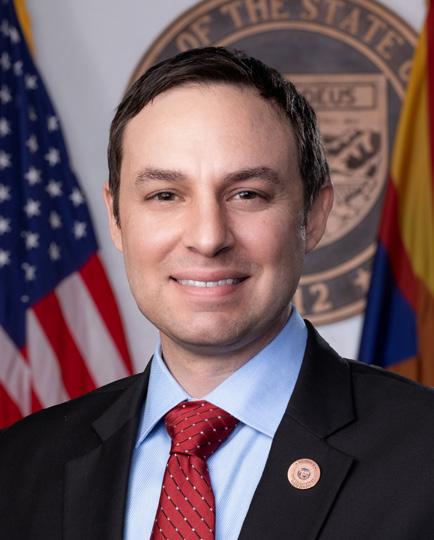
Term Ends: January 2025
Representative Patricia Contreras (D)
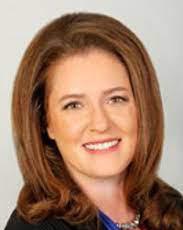
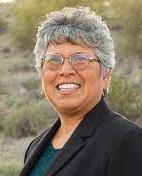

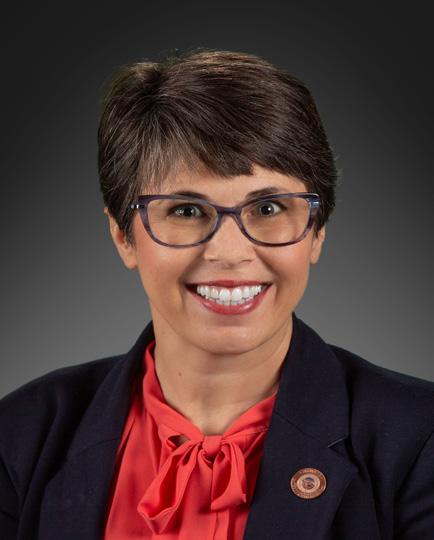
PContreras@azleg.gov
Term Ends: January 2025
Representative Anastasia “Stacey” Travers (D) STravers@azleg.gov
Term Ends: January 2025
Representative Jennifer Pawlik (D)

JPawlik@azleg.gov
Term Ends: January 2025
Representative Liz Harris (R) LHarris@azleg.gov
Term Ends: January 2025
As of December 2022
Governor
Katie Hobbs (D) 602.542.4331 www.azgovernor.gov
Term Ends: January 2027
Supervisor
Adrian Fontes (D) 602.542.4385 www.azsos.gov
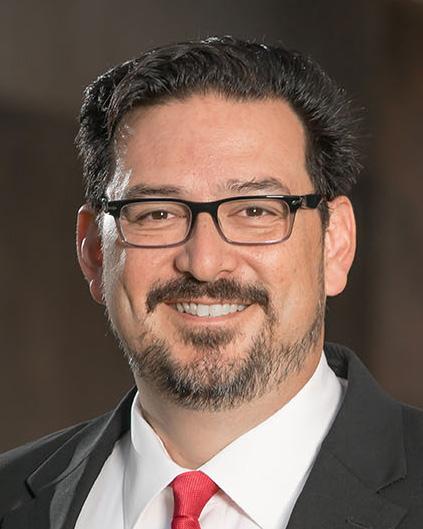
Term Ends: January 2027
Kris Mayes (D) 602.542.5025 www.azag.gov


Term Ends: January 2027
State Treasurer
Kimberly Yee (R) 602.542.7800 www.aztreasury.gov
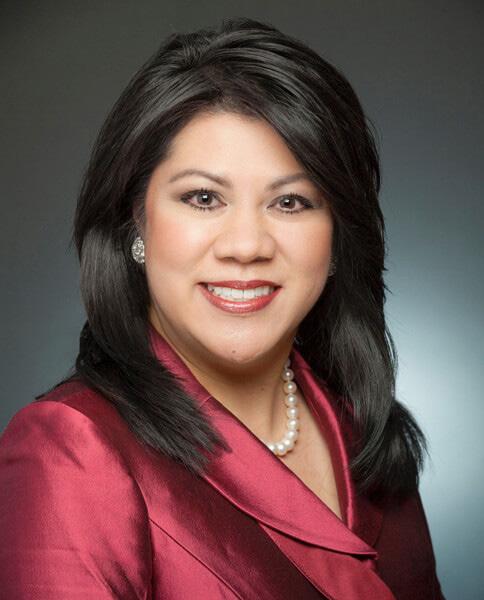
Term Ends: January 2027

Tom Horne (R) 602.542.7378 www.azed.gov

TermEnds: December 31, 2024
Jack Sellers (R)
Board of Supervisors 602.506.1776 www.maricopa.gov/dist1
Term Ends: December 31, 2024

Paul Penzone (D) 602.876.1000 www.mcoo.org
Term Ends: December 2024

Rachel Mitchell (R) 602.506.3411 www.maricopacountyattorney.org
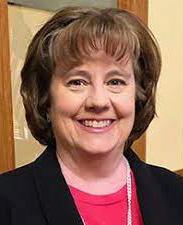
Term Ends: December 31, 2024
Stephen Richer (R) 602.506.3535 www.recorder.maricopa.gov
Term Ends: December 31, 2024
Eddie Cook (R) 602.506.3406 www.mcassessor.maricopa.gov
Term Ends: December 31, 2024

As of December 2022
Chairwoman
Lea Márquez Peterson (R)
LMarquezPeterson-web@azcc.gov
Term Ends: January 2025
Commissioner Jim O’Connor (R) OConnor-web@azcc.gov
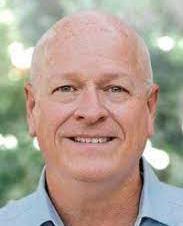
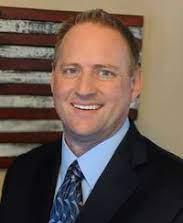

Term Ends: January 2025
Commissioner Anna Trovar (D) Tovar-web@azcc.gov


Term Ends: January 2025
Commissioner Nick Myers (R) myers-webb@azcc.gov
Term Ends: January 2027
Commissioner Kevin Thompson (R) Thompson-web@azcc.gov
Term Ends: January 2027
United States President
Joe Biden (D)
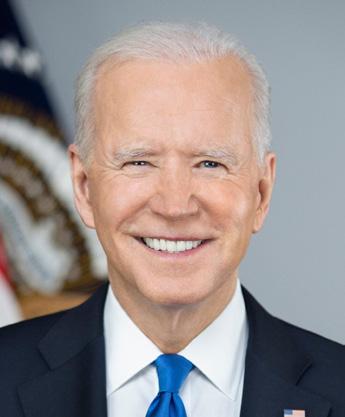
The White House
Term Ends: January 2025
As of December 2022
US Senator Krysten Sinema (D) www.sinema.senate.gov

Term Ends: January 2025
US Senator
Mark Kelly (D) www.kelly.senate.gov

Term Ends: January 2029
Congressional District 5
US Representative
Andy Biggs (R) www.biggs.house.gov
Term Ends: January 2025
Congressional District 9
US Representative
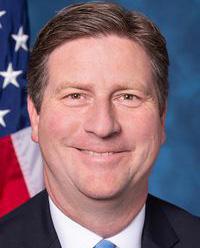

Greg Stanton (D) www.stanton.house.gov
Term Ends: January 2025








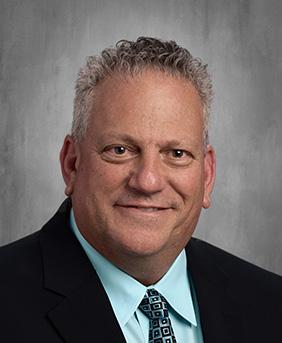
As of December 2022

These districts, and their publically-elected governing boards, were selected as they all represent Chandler students.
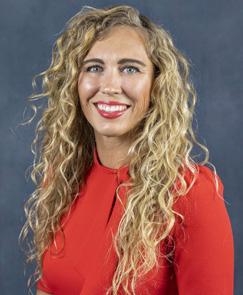
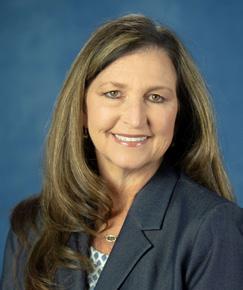





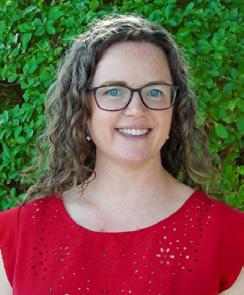




CHANDLER


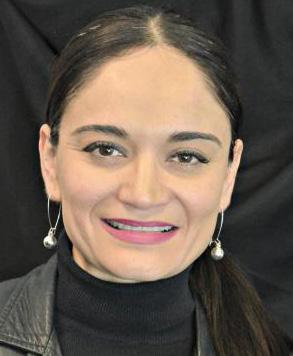





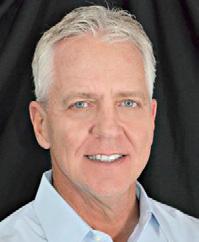




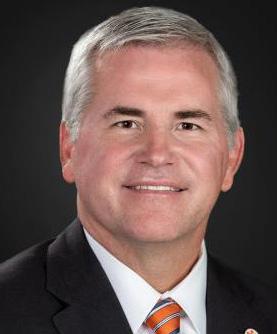





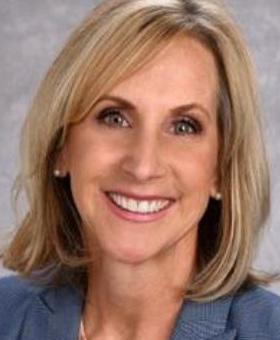
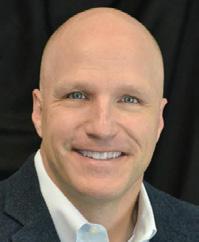
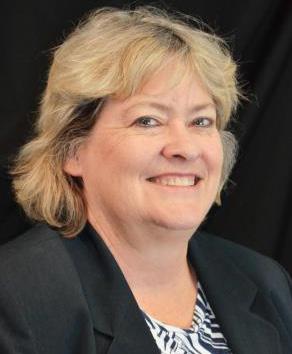


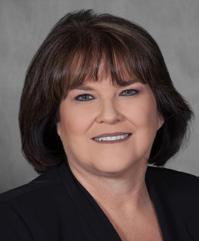








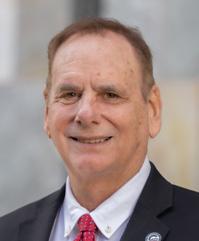


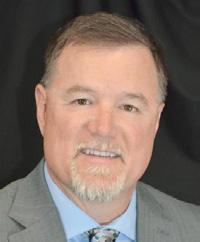
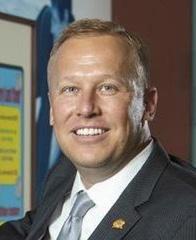
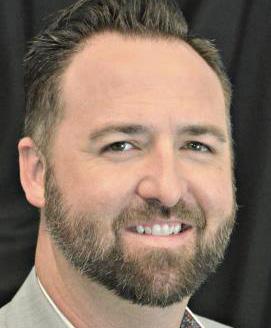

Listed below are the individuals who have participated in the Chandler Chamber Public Policy efforts.
Delia Aguirre
Grace Alvarez
Alexis Apodaca
Jackson Armstrong
Jodi Atkins
Kathleen Banister
Dr. Cindy Banton
Molly Bell Ginal La Benz
Lana Berry
Crystal Blackwell
Richard Bohan
Leonard Brabson
Beth Brizel
Rob Brown
Noelle Carvey
Erika Castro
Blaise Caudill
Suzette Chapman
Kim Corder
Jason Crampton
Dr. William Crawford Hilen Cruz
Jason Dawson
Patricia DiRoss
Erin Eccleston
Councilmember Christine Ellis
Representative Mitzi Epstein
Sheri Farang
Jennifer Fletcher
Greg Fontaine
Brian Fox
Emily Gabaldon
Sarah Galetti
Harvey Gibson
Dr. Craig Gilbert
Julie Graham
Ralph Guariglio
Shirley Gunther
Ron Hardin
Cynthia Hardy
Victor Hardy
Councilmember OD Harris
Mayor Kevin Hartke
Maria Hase
Dezbah Hatathli
Kerry Hayden
John Hetrick
Rick Heumann
Jen Hewitt Michelle Hirsch Malesha Inthisane
Representative Nancy Jackson Jennifer Jermaine
Kurt Johansen
Aimee Griffith-Johnson
Ruth Jones
George Kimble Simone Kjolsrud
Rebecca Landers
Jana LaVanway
Madison Groves Leyvas
Councilmember Rene Lopez
Matt Lubisich
Carol Maas
Andrea Marconi
Caryn Martinez Alex Martinez
Terri McKibbin
Steve Murphy Dr. Wendy Nance Warde Nichols
Councilmember Matt Orlando
Representative Jennifer Pawlik
Ryan Peters
Dr. Greg Peterson
Stephen Phair
Jim Pogge
Jane Poston
Joe Preston
Sally Putnam
Linda Qian David Ralls
Renee Richeson
Laura Robertson
Councilmember Terry Roe Kurt Rohrs
Deliah Rose Colleen Ruiz
Dr. Adama Sallu
Deja Sanders
Jerry Sanniec
Jon Schmitt
Tom Schuhrke
Maricopa County Supervisor Jack Sellers
Victor Serna
Elizabeth Shipley
Dunston Simpson
Mark Slyter
Delaney Starks
Councilmember Mark Stewart
Sam Szeto
Hal Timinsky
David De La Torre
Jill Turski
Ken Weise Christine Wenger
Susan Whitaker
Shelly Winson
Kathy Yeager
Terry Yetter
Interested in contributing to How We Stand this year?
Share your points with us at: info@chandlerchamber.com
Chamber Staff: Terri Kimble President/CEO
Angie Poirier Director of Operations
Michelle Johnson VP Business Development
Lauren Kuntson Area Manager Business Development
Veronica Nazario Area Manager Business Development
Katrina Ward Special Events & Marketing Coordinator
Shannon Watson Data & Operations Coordinator
Chamber Interns: Christina Bustamante
Emilia Krajewski
Max Horn Sebastian Aleman
Vincent Harris
Disclaimer: Everyone listed provided input for the formulation of this document; this does not necessarily reflect their individual opinions, or that of the companies they work for.
1. Smart-city technology fosters innovation of data and digital technology that promotes a more livable future. Examples of smart-city technology include meters and sensors that collect data to adapt and improve citywide infrastructure.
2. The Export-Import Bank is the first of its kind in the State of Arizona. The EXIM Bank is a federal export credit agency, which promotes free trade policies and financing solutions for U.S. companies to compete globally. For more information on the City of Chandler’s EXIM Bank, click here.
3. Business Retention and Expansion (BR&E) is an economic development strategy of proactively connecting with existing businesses to understand and respond to needs. 4. A destination marketing organization is a nonprofit entity, tasked with providing tourism promotion and visitor services. They represent a city, town, state, or county with the intention of bringing in more visitors, and encouraging the economic development of the area.
1. Arizona’s results-based funding model awards schools that receive an “A” or “B” grade from the Arizona Department of Education. For schools that have 60% or fewer students receiving free/reduced lunch, $225 is awarded to the school per student. For schools who have 60% or more students receiving free/reduced lunch, $400 is awarded to the school per student. To read the calculation formulas as passed by the legislature (H.B. 2092, section 8), azleg.gov. To see the 2022 Results-Based Funding Calculations for Arizona schools, azed.gov/ finance/fy-2022-results-based-funding-calculations.
2. P-20 refers to education beginning from “the early years of education through college and career.” For more information about Arizona’s P-20 system.
3. Science, Technology Engineering, Arts, and Mathematics
4. Arizona’s 50/50 Resident Tuition Model is designed to prevent tuition increases for resident students and split the cost of education between the students and the state.
5. Education Forward Arizona’s Progress Meter is a non-partisan source of information about where we stand as a state on key education metrics. To see this data, educationforwardarizona.org/progress/.
6. Support a constitutional change to include school staff, such as teacher aides and counselors as classroom personnel.
7. P-20 longitudinal data systems are state-level educational databases in the United States designed “to capture, analyze, and use student data from preschool to high school, college, and the workforce.
8. Cross-delivery models emphasize a variety of struggles and gaps for student education by adapting learning around student needs. By developing a variety of platforms, such as hybrid and online learning or community institutional partnerships, cross-delivery increases access and equity of quality education for at-risk students.
1. Prop 105, or the Voter Protection Act, amended the Arizona Constitution relating to initiative and referendum measures; prohibits legislative repeals; requires three-fourths vote to amend measures, to supersede measure, or to transfer funds designated by the measures, and only if each furthers the purpose of the measures.
2. State regulatory moratoriums are an executive power that allows the governor to halt certain regulatory activity for a period of time. For more information on the 2022 moratorium, grrc.az.gov/resources/2022rulemaking-moratorium
3. Municipal bond ratings perform the isolated function of credit risk evaluation. The City of Chandler maintains a AAA bond rating, the highest possible rating from all three rating agencies (Moody’s Investor Services, S&P Global, and Fitch Ratings). For more information, grrc.az.gov/resources/2022-rulemaking-moratorium.
1. Article 15 of the Arizona Constitution establishes the Arizona Corporation Commission. By virtue of the Constitution, the Commissioners function in an executive capacity. In addition, they function in a legislative capacity by adopting rules and regulations and a judicial capacity, sitting as a tribunal and making decisions in contested matters.
2. The Drought Contingency Plan is a set of agreements designed to protect the Colorado River system through reductions and increased conservation. As part of the Lower Basin DCP, Arizona works in collaboration with California, Nevada, the federal government, and Mexico in the negotiation and implementation of water-saving measures.
3. The City of Chandler has committed to securing a “diversified water supply” and has implemented water conservation programs and strategies to combat drought conditions. In response to drier seasons, Chandler and local utilities have promoted innovative storage methods and infrastructure as well as improved water
recovery methods. You can read more about Chandler’s drought preparedness plans here. The State of Arizona has promoted sustainable water for its river systems, reservoirs, and groundwater systems. Through Annual Water Use Reports and System Water Plans, Arizona is continuously evaluating vulnerable areas across the state and developing comprehensive conservation methods for water. You can read more about Arizona’s drought contingency plans, www.azica.gov/
4. The Verde River Sediment Mitigation Study is a project to develop and implement water storage solutions along the Verde River. As sediment is carried through the watershed it settles and accumulates which can drastically reduce the storage capacity for reservoirs.
5. A major source has actual or potential emissions at or above the major source threshold for any “air pollutant”.
1. Technological advances such as 5G and Internet of Things (IoT).
2. The Fair Information Practice Principles are the framework for privacy policy used by the Department of Homeland Security. These principles are Transparency, Individual Participation, Purpose Specification, Data Minimization, Use Limitation, Data Quality and Integrity, Security, and Accountability and Auditing..
Healthcare & Affordable Insurance
1. The J-1 Visa program allows for foreign nurses and physicians to practice in medically-underserved communities within the United States without fears of returning to their home residence. For more information, azdhs.gov
2. Accountable Care Organizations are groups of doctors, hospitals, and other health care providers who come together voluntarily to give coordinated, high-quality care to their patients, with the goal of minimizing duplication of services.
3. Provisions such as the removal of a limited plan option that allowed employers to provide employees with low-cost healthcare, healthcare that they are now unable to provide due to higher costs.
4. The state has implemented several changes over the last five years including new mandated reporting for apparent overdoses, deaths, and addiction, increased regulation on prescription and licensing, and new training for law enforcement for the administering of life-saving medication for overdose incidents.
1. Stranded tax credits are tax credits earned by a company but are unable to be used.
2. The Home Rule allows local municipalities to spend money collected from taxes rather than relying on the formula provided by the state.
3. The unintended consequences of the minimum wage increase, such as still having to comply with the new wage even if projections have not been met.
1. Private activity bonds are securities issued by or on behalf of a local government to provide debt financing for projects used most often by a private user. Private activity bond financing normally results in reducing financing costs since interest on the bonds is not subject to federal income taxes.
2. The I-11 would connect Mexico to the Hoover Dam, passing through Arizona rural communities. A project map can be found here.
3. Nodal transportation systems create ease of access for users and facilitation of supply chain processes through a multimodal transportation network that connects transportation hubs.
1. An ordinance is a municipal regulation. A violation of a municipal-level non-discrimination ordinance results in a civil sanction or fees and all enforcement actions are brought directly by the City of Chandler.
2. The Fair Wages & Healthy Families Act, formerly ballot initiative Prop 206, was passed in 2016 and requires a yearly raise in the minimum wage and paid sick-time minimum requirements, based on increases in the cost of living. For more information, www.azica.gov/
3. In Arizona “registered” apprenticeship programs offer several perks including paychecks with guaranteed increases, on-the-job training, potential school credit, and national industry certification.
4. Ambush elections would allow union elections to take place in as few as 13 days from the initial petition, leaving employers with little time to prepare for the election and ensure that employees are fully informed.
5. Common-sense regulation is based on risk-based, less prescriptive, and responsive to business realities.